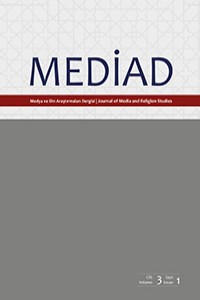Book Review
Year 2020,
Volume: 3 Issue: 1, 157 - 160, 29.06.2020
Abstract
Islamophobia, which is used frequently to express the negative perception of Western societies about Islam and Muslims with various different definitions, is a concept that can be expressed as fear and hostile feelings for Islam and all Muslims. Studies on Islamophobia are generally related to what the concept is and how it is encouraged, and within this frame the literature is very rich with various case analyses. With this study, a different examination of the concept will be carried out and approaches will be presented on how Islamophobic trends can be explained in a theoretical context. These theoretical approaches to be presented within the framework of this analysis aim to examine the concept in the socio-political field and explain the discussion elements with the existing theories within this context. Social identity theory, perceived threat theory, attitudinal and behavioral Islamophobia approaches, post-truth politics, populist politics, multiculturalism, post-secularism, and related communication theories will be examined to better explain dynamics between ‘us’ and ‘other’ within the Islamophobia discussions.
References
- Pennington, R., & Kahn, H. E. (Ed). (2018). On Islam: Muslims and the Media. Bloomington, IN: Indiana University Press. 173 sayfa.
Year 2020,
Volume: 3 Issue: 1, 157 - 160, 29.06.2020
Abstract
İslamofobi, Batı toplumlarının İslam ve Müslümanlar hakkında sahip olduğu olumsuz algının ifade edilmesi için sıklıkla kullanılan ve birçok tanıma sahip olmakla birlikte genel itibariyle İslam’a ve buna bağlı olarak tüm Müslümanlara karşı duyulan korku ve gösterilen düşmanca yaklaşım şeklinde ifade edilebilecek bir kavramdır. İslamofobi üzerine yapılan çalışmalar, çoğunlukla kavramın ne olduğu ve ne şekilde desteklendiği ile ilintilidir ve ilgili vaka analizleri çerçevesinde literatür oldukça zengindir. Bu çalışma ile kavrama dair farklı bir inceleme gerçekleştirilecek ve İslamofobik eğilimlerin kuramsal bağlamda ne şekilde açıklanabileceğine dair yaklaşımlar sunulacaktır. Bu kuramsal yaklaşımlarda, kavramı sosyo-politik alanda mercek altına almak ve tartışma unsurlarını bu bağlamda var olan kuramlarla açıklamak hedeflenmektedir. Bunlar, İslamofobi yazınında ‘biz’ ve ‘öteki’ olarak algılanan gruplar arasındaki dinamikleri açıklamaya yönelik olarak; sosyal kimlik kuramı, algılanmış tehdit kuramı, tutumsal ve davranışsal İslamofobi yaklaşımları, gerçek-ötesi siyaset, popülist siyaset, çok kültürlülük, post-sekülerizm ve bu çerçevedeki iletişim kuramlarıdır.
References
- Pennington, R., & Kahn, H. E. (Ed). (2018). On Islam: Muslims and the Media. Bloomington, IN: Indiana University Press. 173 sayfa.
There are 1 citations in total.
Details
| Primary Language | Turkish |
|---|---|
| Subjects | Communication and Media Studies, Religious Studies |
| Journal Section | Book Reviews |
| Authors | |
| Publication Date | June 29, 2020 |
| Published in Issue | Year 2020 Volume: 3 Issue: 1 |
 MEDYA VE DİN ARAŞTIRMALARI DERGİSİ (MEDİAD) - JOURNAL OF MEDIA AND RELIGION STUDIES
MEDYA VE DİN ARAŞTIRMALARI DERGİSİ (MEDİAD) - JOURNAL OF MEDIA AND RELIGION STUDIES
This journal is licensed under a Creative Commons Attribution 4.0 International License.


